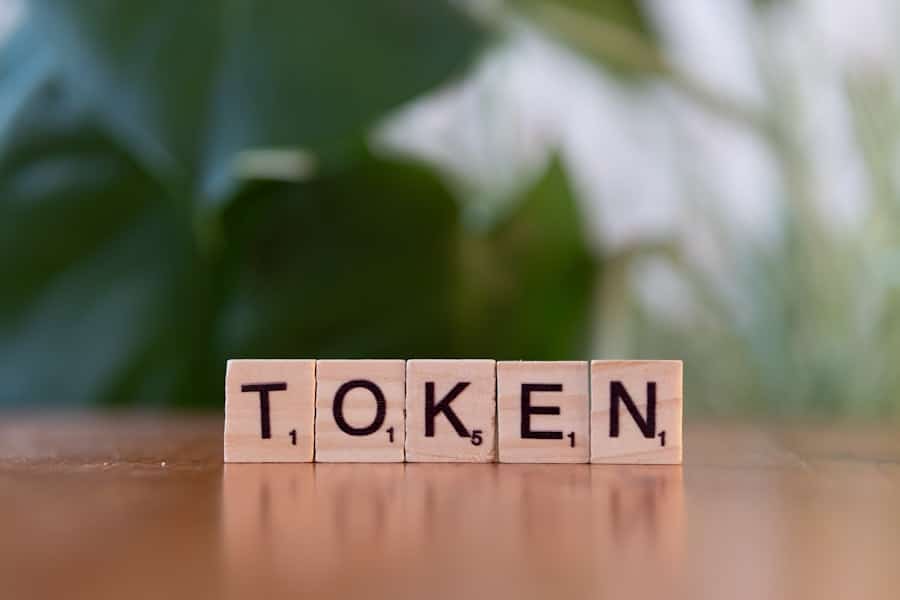Non-Fungible Data Tokens (NFDTs) represent a groundbreaking evolution in the way digital assets are created, owned, and traded. Unlike traditional tokens that can be exchanged on a one-to-one basis, non-fungible tokens (NFTs) are unique and cannot be replaced with something else of equal value.
Each NFDT is tied to a specific piece of data, whether it be an artwork, a piece of music, or even a digital identity, and is stored on a blockchain, ensuring its authenticity and provenance. The concept of NFDTs extends beyond mere digital collectibles; it encompasses any form of data that can be tokenized. For instance, an artist could tokenize their digital artwork, creating an NFDT that represents ownership of that specific piece.
Similarly, a musician could issue NFDTs for their songs, allowing fans to own a unique version of the track. This tokenization process not only provides a new revenue stream for creators but also empowers consumers by giving them verifiable ownership of digital assets that were previously difficult to claim.
Key Takeaways
- Non-Fungible Data Tokens are unique digital assets that represent ownership of specific data or digital content.
- Non-Fungible Data Tokens are important in the digital world as they enable provenance, ownership, and transfer of digital assets in a secure and transparent manner.
- Non-Fungible Data Tokens differ from fungible tokens in that they are not interchangeable and each token has unique properties and value.
- Blockchain technology plays a crucial role in Non-Fungible Data Tokens by providing a decentralized and immutable ledger for tracking ownership and transactions.
- Examples of Non-Fungible Data Tokens can be found in industries such as art, gaming, real estate, and collectibles, where they enable unique digital asset ownership and trading.
The Importance of Non-Fungible Data Tokens in the Digital World
The rise of NFDTs marks a significant shift in the digital landscape, particularly in how we perceive ownership and value in the virtual realm. In an age where digital content is easily replicated and shared, NFDTs provide a mechanism for establishing authenticity and scarcity. This is crucial for artists, musicians, and content creators who have historically struggled to monetize their work in an environment rife with piracy and unauthorized distribution.
By leveraging NFDTs, creators can ensure that their work is recognized and valued appropriately. Moreover, NFDTs have the potential to revolutionize industries beyond art and entertainment. In sectors such as real estate, healthcare, and education, NFDTs can be used to represent ownership of physical assets or sensitive data.
For example, a property deed could be tokenized as an NFDT, allowing for seamless transfers of ownership while maintaining a transparent record on the blockchain. This not only enhances security but also streamlines transactions, reducing the need for intermediaries and associated costs.
How Non-Fungible Data Tokens Differ from Fungible Tokens

To fully appreciate the significance of NFDTs, it is essential to understand how they differ from fungible tokens. Fungible tokens, such as cryptocurrencies like Bitcoin or Ethereum, are interchangeable units that hold the same value.
This interchangeability makes fungible tokens ideal for use as currency or for facilitating transactions. In contrast, NFDTs are inherently unique. Each token carries distinct information that sets it apart from others, making it impossible to exchange one NFDT for another on a one-to-one basis.
This uniqueness is what allows NFDTs to represent specific assets or pieces of data. For instance, while two fungible tokens may have the same market value, two NFDTs may represent entirely different artworks or pieces of music with varying degrees of cultural significance and market demand. This fundamental difference in nature leads to varied applications and implications for both creators and consumers in the digital economy.
The Role of Blockchain Technology in Non-Fungible Data Tokens
Blockchain technology serves as the backbone for non-fungible data tokens, providing a decentralized and immutable ledger that records every transaction involving these tokens. The transparency and security offered by blockchain are critical for establishing trust among users in the digital ecosystem. When an NFDT is created, its details—including ownership history and transaction records—are permanently stored on the blockchain.
This ensures that anyone can verify the authenticity and provenance of the token without relying on a central authority. Furthermore, blockchain technology enables smart contracts, which are self-executing contracts with the terms of the agreement directly written into code. Smart contracts can automate various processes related to NFDTs, such as royalty payments to creators whenever their token is sold or resold.
This automation not only simplifies transactions but also ensures that creators receive fair compensation for their work over time. The integration of smart contracts with NFDTs exemplifies how blockchain can enhance the functionality and appeal of digital assets.
Examples of Non-Fungible Data Tokens in Various Industries
The application of non-fungible data tokens spans multiple industries, showcasing their versatility and potential impact. In the art world, platforms like OpenSea and Rarible have emerged as marketplaces for artists to mint and sell their digital artworks as NFDTs. A notable example is Beeple’s “Everydays: The First 5000 Days,” which sold for a staggering $69 million at a Christie’s auction, highlighting the immense value that NFDTs can command in the art market.
In the gaming industry, NFDTs are being utilized to create unique in-game assets that players can buy, sell, or trade. Games like Axie Infinity allow players to own unique creatures represented as NFDTs, which can be bred or battled within the game environment. This not only enhances player engagement but also creates a real economic incentive for players to invest time and resources into their gaming experience.
The music industry is also beginning to embrace NFDTs as a means of empowering artists and enhancing fan engagement. Musicians can issue limited edition tracks or exclusive content as NFDTs, allowing fans to own a piece of their favorite artist’s work. For instance, Kings of Leon released an album as an NFT that included exclusive perks such as front-row concert tickets and special merchandise.
This innovative approach not only provides artists with new revenue streams but also fosters a deeper connection between creators and their audiences.
The Potential Impact of Non-Fungible Data Tokens on Data Ownership and Security

One of the most profound implications of non-fungible data tokens lies in their potential to redefine data ownership and security in the digital age. Traditionally, users have had limited control over their personal data, often relinquishing ownership to platforms in exchange for access to services. With NFDTs, individuals can regain control over their data by tokenizing it and establishing verifiable ownership on the blockchain.
For example, individuals could tokenize their personal health data as NFDTs, allowing them to share this information with healthcare providers while retaining ownership rights. This would not only enhance privacy but also enable individuals to monetize their data if they choose to share it with researchers or companies seeking insights into health trends. By empowering users with ownership over their data, NFDTs could foster a more equitable digital economy where individuals are compensated for their contributions.
Moreover, the security features inherent in blockchain technology significantly enhance the protection of data associated with NFDTs. The decentralized nature of blockchain makes it resistant to tampering or unauthorized access, ensuring that sensitive information remains secure. As concerns about data breaches and privacy violations continue to grow, NFDTs offer a promising solution for safeguarding personal information while enabling individuals to maintain control over its use.
Challenges and Limitations of Non-Fungible Data Tokens
Despite their potential benefits, non-fungible data tokens face several challenges and limitations that must be addressed for widespread adoption. One significant concern is the environmental impact associated with blockchain technology, particularly those that rely on energy-intensive proof-of-work consensus mechanisms. The carbon footprint generated by mining activities has raised alarms among environmentalists and consumers alike, prompting calls for more sustainable alternatives.
Additionally, the regulatory landscape surrounding NFDTs remains uncertain in many jurisdictions. Governments are grappling with how to classify these tokens and what legal frameworks should govern their use. Issues related to intellectual property rights, taxation, and consumer protection are still being debated, creating an environment of ambiguity that could hinder innovation and investment in this space.
Another challenge lies in user education and accessibility. While interest in NFTs has surged among tech-savvy individuals and collectors, many potential users remain unaware of how to navigate this new landscape. Simplifying the process of creating, buying, and selling NFDTs is essential for attracting a broader audience and ensuring that these tokens reach their full potential.
The Future of Non-Fungible Data Tokens and Their Implications for Businesses and Consumers
Looking ahead, non-fungible data tokens are poised to play an increasingly prominent role in shaping the future of digital commerce and content creation. As more industries recognize the value of tokenizing assets and data, we can expect to see innovative applications emerge across various sectors. Businesses will likely explore new revenue models based on NFDTs while consumers will benefit from enhanced ownership rights and opportunities for engagement with creators.
The integration of NFDTs into existing business models could lead to more personalized experiences for consumers. For instance, brands may issue limited edition products as NFDTs that grant holders exclusive access to events or special promotions. This approach not only fosters brand loyalty but also creates a sense of community among consumers who share similar interests.
As technology continues to evolve, we may also witness advancements in interoperability between different blockchain networks. This would enable seamless transferability of NFDTs across platforms, further enhancing their utility and appeal. The potential for cross-platform collaboration could lead to new forms of digital experiences that blur the lines between various industries.
In conclusion, non-fungible data tokens represent a transformative force in the digital landscape, offering new avenues for ownership, security, and engagement across multiple sectors. As challenges are addressed and innovations continue to emerge, NFDTs have the potential to reshape our understanding of value in the digital world while empowering both creators and consumers alike.
If you are interested in understanding the concept of non-fungible data tokens, you may also want to check out this article on how to choose a laptop for students. Understanding the technology behind non-fungible tokens can also help you make informed decisions when it comes to selecting the right laptop for your academic needs.
FAQs
What are non-fungible data tokens?
Non-fungible data tokens are unique digital assets that represent ownership or proof of authenticity of a specific piece of data. They are non-interchangeable and cannot be replaced with something else.
How do non-fungible data tokens work?
Non-fungible data tokens are typically built on blockchain technology, which ensures the security and immutability of the data. Each token is assigned a unique identifier and can be transferred or sold just like physical assets.
What are the uses of non-fungible data tokens?
Non-fungible data tokens can be used in various industries such as art, music, gaming, and real estate to prove ownership, authenticate digital assets, and create scarcity for digital goods.
What is the difference between fungible and non-fungible tokens?
Fungible tokens, such as cryptocurrencies, are interchangeable and can be exchanged on a one-to-one basis. Non-fungible tokens, on the other hand, are unique and cannot be exchanged on a like-for-like basis.
Are non-fungible data tokens secure?
Non-fungible data tokens are secured by blockchain technology, which makes them tamper-proof and resistant to fraud. However, it is important to store and transfer them using secure and reputable platforms.

